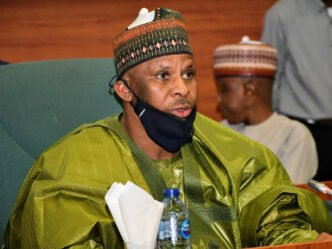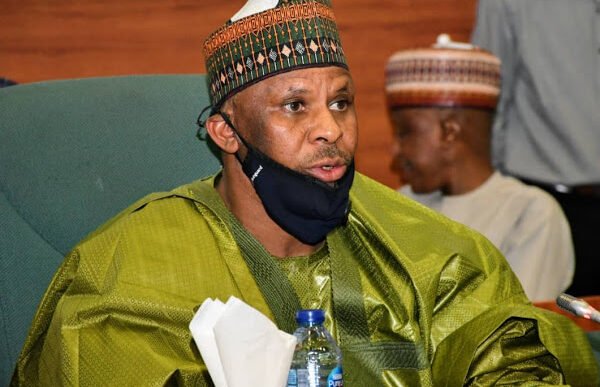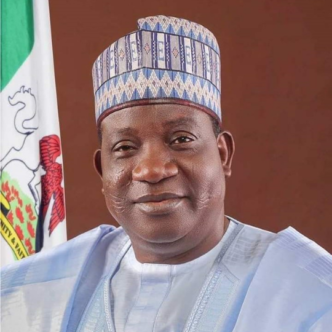Bill Sponsor: Hon. Jesse Okey-Joe Onuakalusi. Bill Progress: First Reading.
In recent legislative developments in Nigeria, a significant proposal has emerged aimed at improving the lives of thousands of commercial drivers across the nation. The “Drivers’ Welfare and Social Security Bill (HB.2478)” is a pioneering legislative initiative. While details about the bill are still unfolding, its title reflects an important focus on the welfare and social security of one of Nigeria’s most vital workforce segments.
Commercial drivers play a critical role in Nigeria’s economy, providing essential transport services that keep cities moving. Unfortunately, many of these drivers operate without the safety nets typically afforded to workers in more formal sectors. This lack of protection exposes them to significant risks, ranging from health emergencies to financial instability in case of accidents or retirement. The Drivers’ Welfare and Social Security Bill seeks to address these gaps by creating a robust framework for the welfare and social security of commercial drivers, potentially including provisions for health insurance, pension schemes, and welfare funds.
The introduction of this bill comes in the wake of ongoing discussions about workers’ rights and the need for social protection mechanisms across various informal sectors in Nigeria. The informal economy has seen exponential growth in recent years, yet many workers remain vulnerable due to the absence of structured support systems. This bill, if enacted, could mark a significant shift in policy toward recognizing and safeguarding the rights of these essential service providers.
Hon. Onuakalusi’s initiative is not an isolated effort; it underscores a broader commitment within the 10th National Assembly to address systemic issues in Nigeria’s labor landscape. Alongside the Drivers’ Welfare and Social Security Bill, the legislator has been active in sponsoring other notable bills, including the Price Control Act (Amendment) Bill, 2025 (HB. 2388), and the Child’s Rights and Welfare Commission (Establishment) Bill. Each of these legislative measures reflects a keen awareness of the diverse challenges faced by different segments of society, indicating a proactive approach to governance.
The specifics of HB.2478 are still emerging as it progresses through legislative procedures. While the current legislative status, such as whether it has undergone its first or second reading, has not been widely publicized, the growing discourse surrounding the bill signifies its potential impact. Observers of the Nigerian political landscape are closely monitoring developments, anticipating discussions in committees and among stakeholders involved in transportation and labor rights.
One of the critical elements of the Drivers’ Welfare and Social Security Bill is its potential to create a formalized structure for health insurance that covers commercial drivers. Currently, many drivers operate outside formal healthcare systems, often facing exorbitant medical expenses that can arise from unforeseen health issues or accidents. Access to affordable health coverage could not only improve individual well-being but also enhance overall public health outcomes, reducing the burden on the healthcare system.
In addition to health insurance, the bill proposes the establishment of pension schemes designed specifically for drivers, whose careers are often characterized by high levels of risk and uncertainty. Ensuring that drivers can secure financial stability in their later years could mitigate poverty rates among retirees in this demographic, allowing them to live with dignity after years of service.
Furthermore, the inclusion of welfare funds could provide immediate financial relief to drivers facing emergencies, such as accidents or natural disasters, which could otherwise lead to devastating financial consequences. The creation of these funds would act as a safety net, potentially saving families from falling into poverty due to unexpected hardships.
The passage of this bill could also signal a shift in government recognition of the critical role that informal sector workers, like commercial drivers, play in Nigeria’s economy. By prioritizing their welfare, lawmakers can foster a more inclusive economy that provides pathways for better working conditions and social security measures for all.
There is a palpable optimism among many advocates for labor rights regarding this bill. Organizations and unions representing commercial drivers have begun voicing their support, emphasizing the need for a collective voice in advocating for better working conditions. These groups have expressed hope that this legislative effort will lead to a more structured dialogue between the government and stakeholders in the transport sector.
In conclusion, the Drivers’ Welfare and Social Security Bill presents an exciting opportunity for transformative change in the lives of commercial drivers in Nigeria. While the bill is still under consideration, its introduction marks a critical milestone in the recognition and protection of workers in the informal sector. The proactive measures encapsulated in the bill could not only enhance the welfare of drivers but could also serve as a blueprint for similar initiatives aimed at safeguarding the rights of vulnerable workers across Nigeria’s diverse economic landscape. As discussions unfold and the legislative process advances, many will be watching closely, hopeful for a future where all workers, regardless of their sector, can enjoy the dignity and protection they deserve.












